Forced to Flee, Nowhere to Go
Alive in Sudan speak with two Sudanese women internally displaced due to the war, one from Darfur and another from Khartoum, areas badly impacted by the conflict that began in April 2023.
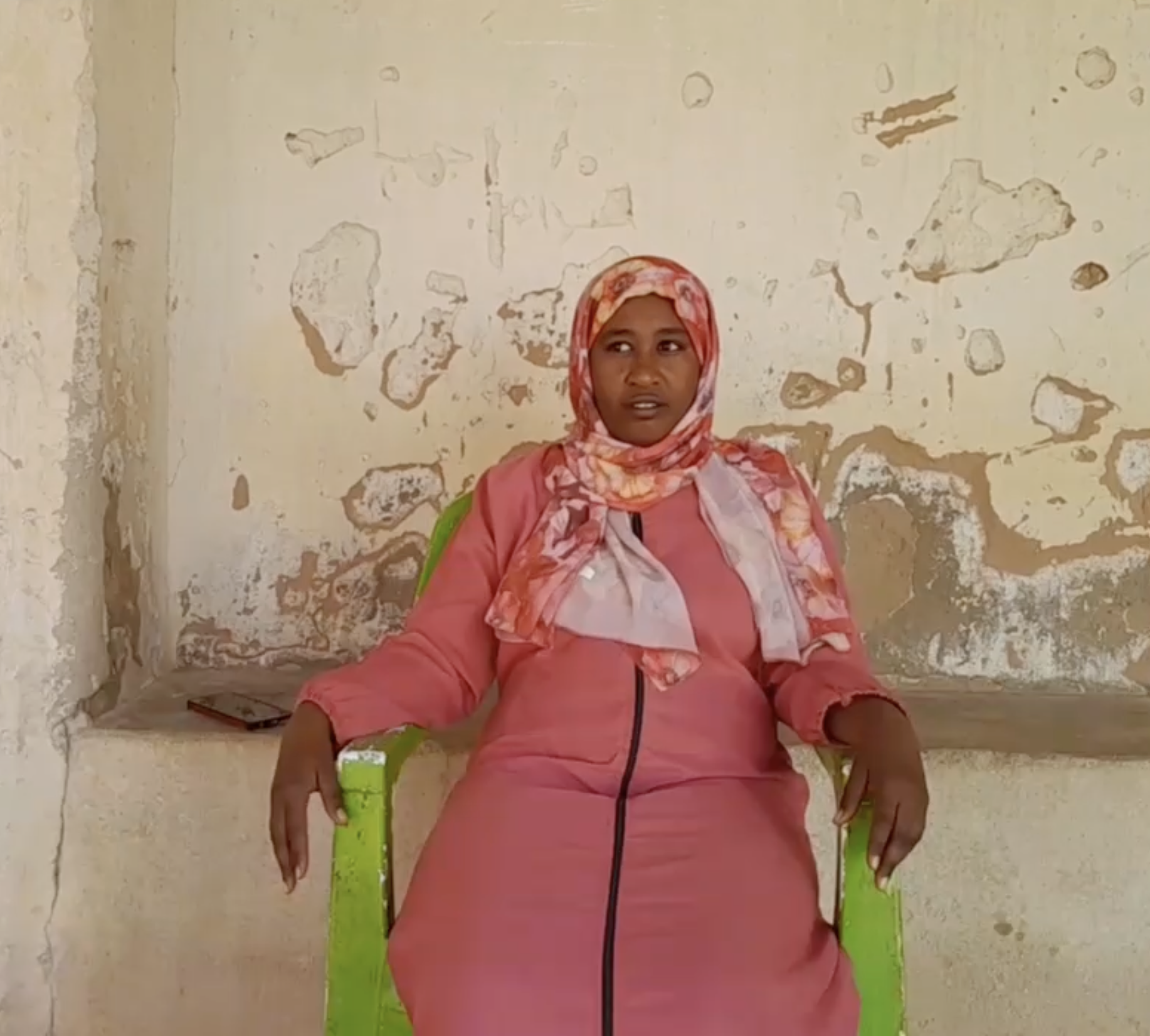
reporting by Mayada Abdalla and Amal Beito
assembled by Brian Conley, with assistance from the Alive-in/ editorial team
This story is part of a partnership between Alive-in/ and DT-Institute to support Sudanese journalists inside and outside Sudan. DT Institute is both a funder and an implementer of peace and development projects. More stories can be read in Arabic on the Alive-in/Sudan Facebook page.
Alive-in is a not-for-profit media agency that mentors journalists from underrepresented communities to increase local and national understanding.
If you are able to support our work financially, please click the button below.
NORTHERN STATE + AL-DAEIN, SUDAN–Sudan’s year-long civil war broke out on April 15th, 2023 when clashes began between Sudan’s Armed Forces under the command of General Burhan and the Rapid Support Forces under the direction of Burhan’s former ally, General Hamdan. A long-hoped for transition to civilian rule was cut short as gunfire and explosions rang out across Sudan’s capital city, Khartoum, and elsewhere throughout the country.
According to Hala Abdelhai, a veterinarian who worked in Khartoum at the time, “I remember the first day; I was at work. We returned home before the end of the day, thinking we would go back to work the next day as usual. But we didn't return, and life was calm because it was the end of Ramadan. Then there were sounds of gunfire, bullets, and cannons. They didn't scare us much because they were a bit far away. The situation was somewhat stable at first.”
Unfortunately, the stability did not last. Despite calls for a ceasefire ahead of the end of Ramadan, the fighting worsened, and according to ACLED at least 1800 died in 340 incidents during the first month of the war.
Hala told Alive in Sudan that the decision to leave home was very difficult. “Some were against it, and I was one of them. Others decided to leave due to the situation and the news of many killings in areas a bit far from us. The war hadn't reached us yet.”
Despite her initial hesitation, Hala and her family did leave Khartoum and head north to Merowe in Sudan’s Northern State, northwest of Khartoum. The roads out of the city were chaotic, there was heavy traffic and checkpoints were everywhere.
Since the war began in April 2023, more than 8.8 million Sudanese have been displaced, according to the United Nations Office for the Coordination of Humanitarian Assistance (UNOCHA).
“Our area was safe, but once we left, we began to feel real danger. I tried to stay calm, but I remember the children and their mother were extremely scared. We tried to calm them down, and I remember we kept asking how many more checkpoints were left or what the next checkpoint would be like.”
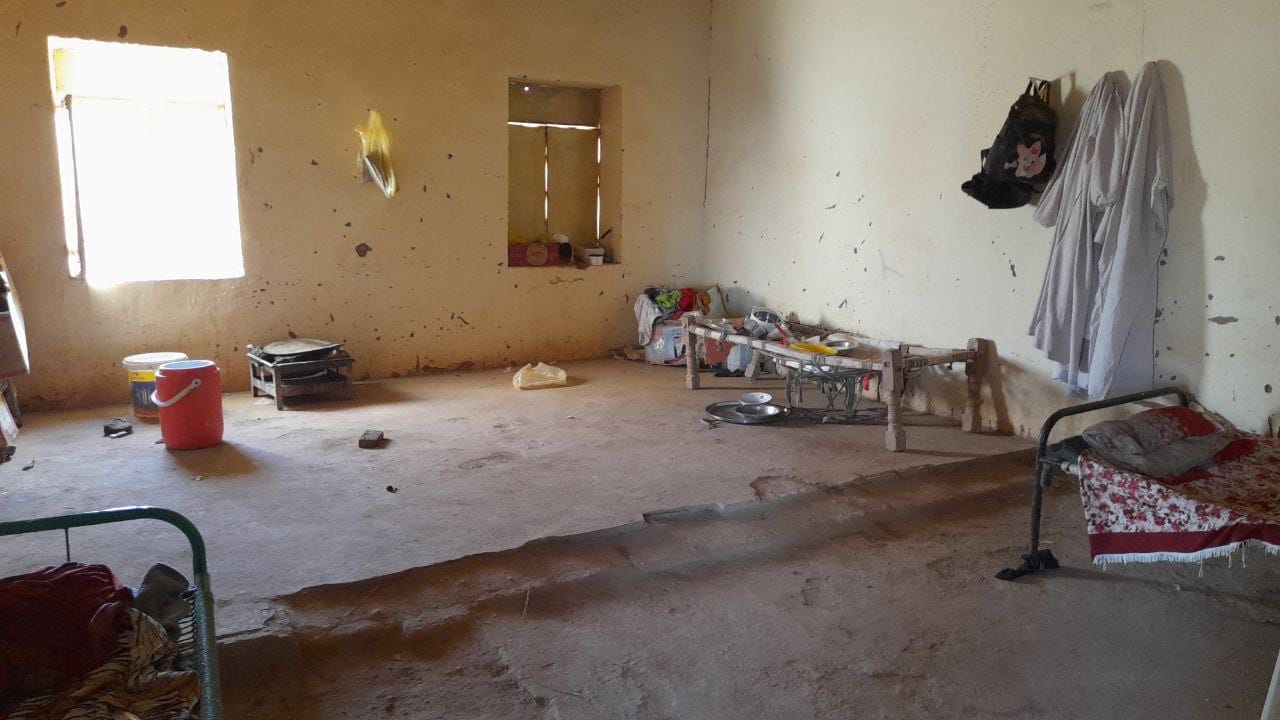
On a normal day, the trip from Khartoum to Merowe should take roughly six hours. However due to road closures they could not take the road from Omdurman, but had to travel northeast through Shendi-Atbara.
“I recall it took 24 hours, which was extremely exhausting.”
Eventually they made it to Hala’s grandfather’s house in the north, but the challenges did not end there, “There were many displaced people, and the houses couldn't accommodate everyone. It was sudden and unplanned, so there was no privacy. It was very difficult with several families in one house. It was a really bad situation.”
“We faced many difficulties, both from the environment and from dealing with relatives due to cultural differences. Moreover, we arrived with bad mental states. The reception was not what we expected. The environment in Khartoum is different from that in the states.”
In the first month of the war there were seven hundred fatalities reported in Al-Geneina due to heavy shelling and fighting between the RSF and the SAF. As the war dragged on, Sudanese people have been displaced from their homes all across the country.
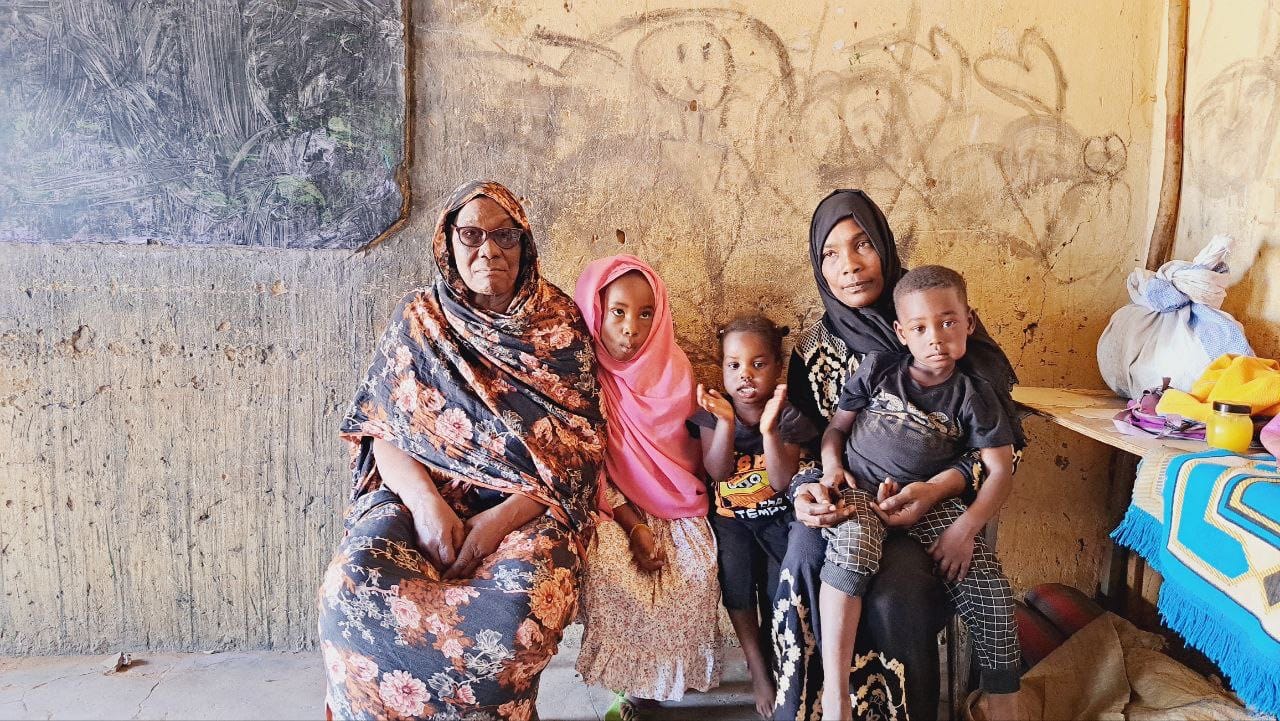
Marwa Saeed Douwalbeit was a high school teacher living in Nyala before the war broke out. Originally from Al-Geneina, Marwa moved to Nyala after her husband’s death in 2022. Unfortunately her leave ended and she returned to Al-Geneina with her children just as the war broke out.
At the end of Ramadan, I wanted to go to Nyala, but the [conflict] started. During the entire four months, I was in Geneina. Honestly, it was a very difficult time. The humanitarian situation was dire; people were displaced, and we were displaced too. We didn’t go to Chad, but we were confined to the northern neighborhoods of Geneina.
In the first month of the war there were seven hundred fatalities reported in Al-Geneina due to heavy shelling and fighting between the RSF and the SAF
After Eid al-Adha, I came to Nyala. I had no money, so I stayed until the situation calmed down. My brother Abdul Aziz helped me by buying a ticket to Zalingei. I stayed in Zalingei for a night, then moved to Nyala.
Zalingei and Nyala are both in Sudan’s western Darfur region. Zalingei is approximately 130 miles northwest of Nyala and nearly 900 miles west of Khartoum, Sudan’s capital.
Although conditions in Nyala were difficult and uncertain, Marwa was initially hesitant to move. “During the war in Nyala, we stayed in our house. In August, the support forces entered our neighborhood. After that, we left and moved to another neighborhood in northern Nyala, specifically North Nyala.”
“But as the situation worsened and the army withdrew, we woke up in the morning and found the place empty. So, we immediately moved to the mountains, got into vehicles, and reached Al-Daein.”
Initially Al-Daein was safe, though like all of Sudan, the situation was tenuous. Marwa explained, “When we came with the fall of Nyala, we encountered people from the support forces moving from here to Nyala. There were just checkpoints, but thankfully, we arrived safely in Al-Daein.”
Marwa’s group was the last to reach Al-Daein on the day they arrived. The city was quiet and there was no one present to receive IDPs as they arrived.“We arrived at night and were supposed to be taken to the school, but the driver refused. We had some distant relatives with us, and we stayed in another neighborhood. Then we came to the school.”
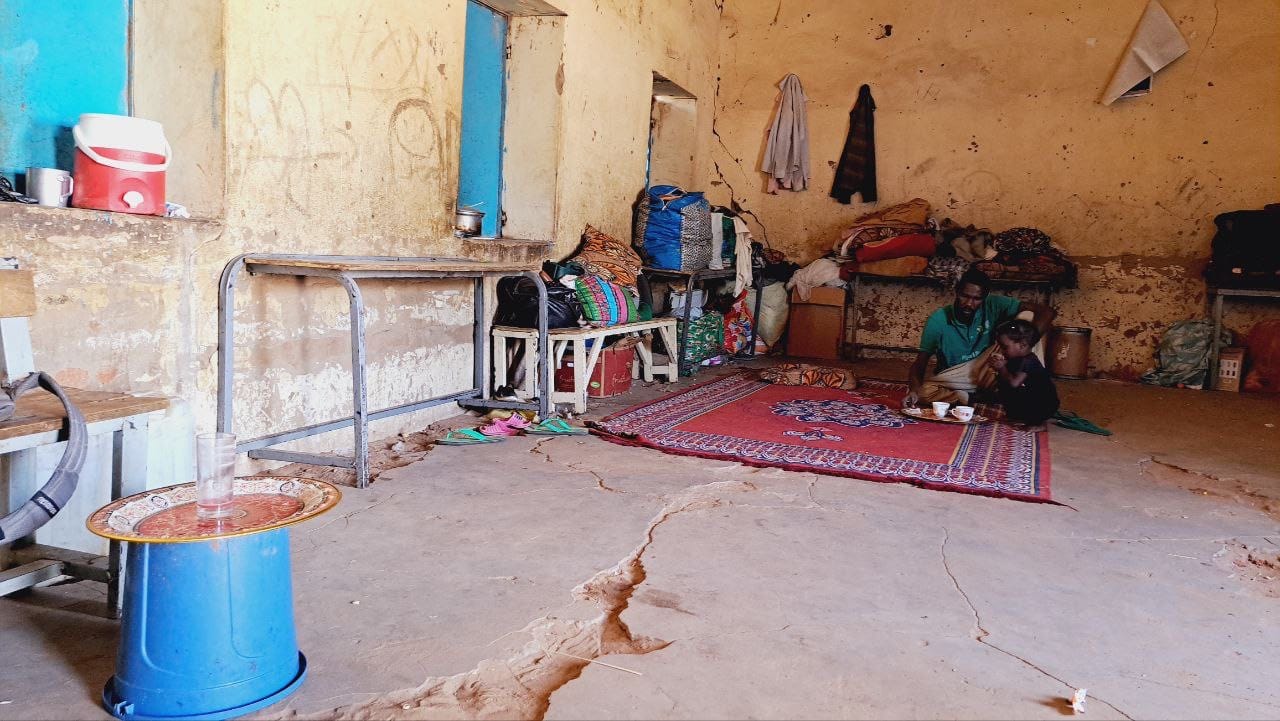
Using schools to shelter internally displaced people during a conflict is not unique to Sudan. International humanitarian law requires all parties to a conflict to take precautions to protect schools and universities from being affected by military operations. Despite this and other laws, schools across the globe continued to be negatively impacted by war, and are being used currently to shelter IDPs from Sudan to Gaza.
By the time that Marwa arrived in Al-Daein, Hala and her family had already spent months living in a school in Northern State. “With time, we managed to cope, especially after we settled in the school. The situation became easier as we gathered with our extended family, including my married sisters. This made things easier. Honestly, everything here is difficult. The living conditions are tough, and everything is different.”
Hala explained to Alive in Sudan that they are provided with basic necessities by the Red Crescent Society, such as flour, sugar, and cooking oil. In addition to the Red Crescent, Hala said that her family has received support from a Saudi organization, but she did not recall the name of the organization.
So long as schools remained closed due to the conflict, displaced families such as Hala’s and Marwa’s had a place to find shelter. Unfortunately for Hala and her family, schools in Northern State reopened late in May, leaving her family’s future uncertain. When Alive in Sudan attempted to contact Hala again to hear how the news was affecting her, she could not be reached.
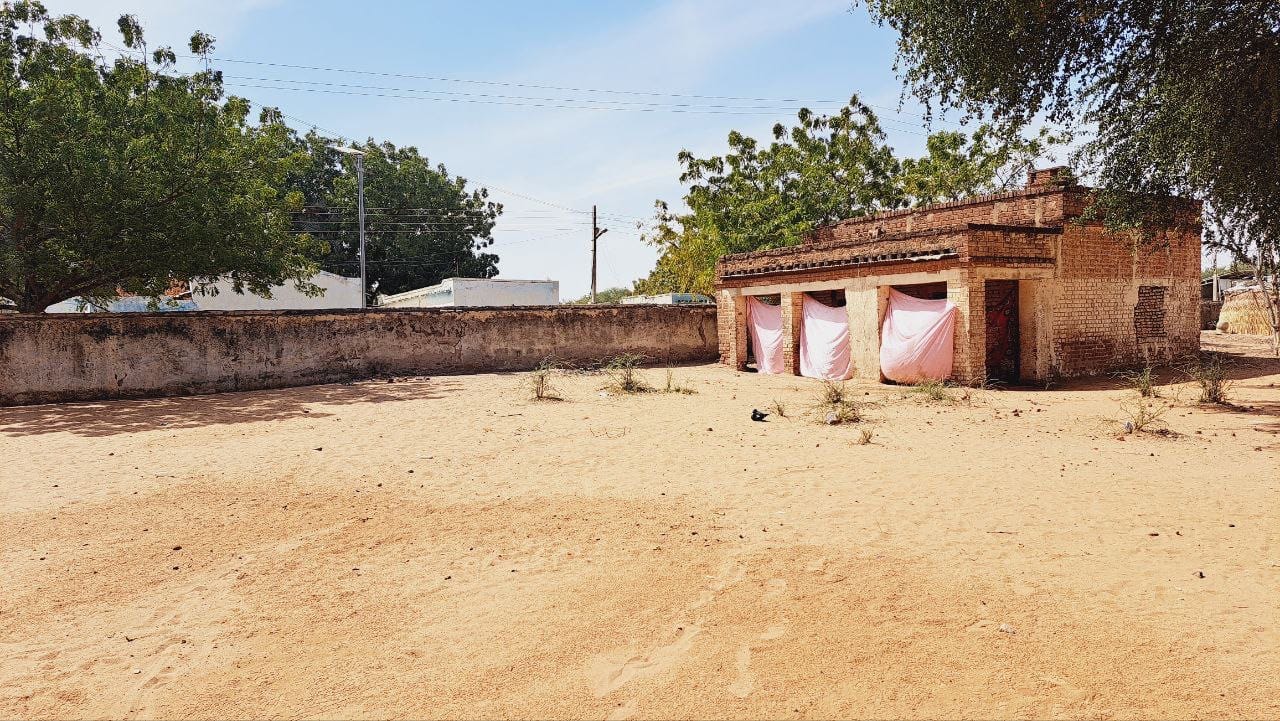
When Marwa and her family first arrived, the school was full, “So we stayed in the yard for two weeks in the cold and wind without any supervision. Only one supervisor [of the refugees] came and suggested we return to Nyala. We told him we just arrived and wouldn't go back. We stayed outside for two weeks without anyone checking on us or providing anything.”
“My parents are old and couldn't endure it well. We had two mattresses and slept in the yard until morning. We made a small shelter using sacks and some sheets. We cooked in that area, and for bathroom needs, we used a specific area.”
Marwa said that after those first two weeks, due to some incidents in Al-Daein, people got scared and ran away. Recalling this time she said, “Luckily, we found a classroom and moved in. Now, we are settled.”
Asked whether she has any optimism about her current situation Marwa replied that the security in Al-Daein has generally been good, “The situation in Al-Daein is not like Nyala. The weapons we heard in Nyala are not here. We came here seeking security, and Al-Daein is safe and stable now, thank God.”
If you appreciated this story, please consider making a donation to support Alive-in's team of local reporters around the world.
